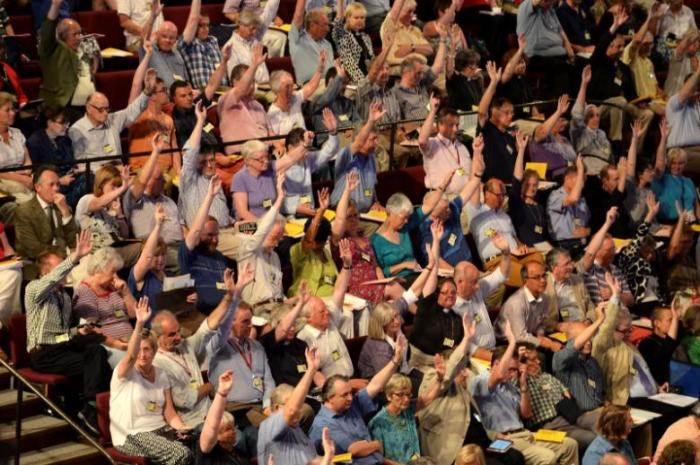Evangelical Groups Merge in UK to Respond to Church 'Crisis,' Rejection of Christianity

Three of the biggest evangelical Anglican groups are merging in the U.K. to respond to what they say is a crisis of convictions in the Church of England, as well as the nation's continued "rejection" of the Christian faith.
Church Society, Reform and the Fellowship of Word and Spirit announced on Monday that they have worked out a detailed merger plan. A new Church Society representative of all three groups is scheduled to be elected on May 12, along with a new president.
"I rejoice greatly and am so grateful to God that Anglican evangelicals in the U.K. are combining their strengths to stand firm in the Church of England," the Rev. Lee Gatiss, director of Church Society, said in a statement.
"This is a huge story and counters the fiction that orthodox groups are fragmenting and leaving. We're not. We're coming together like never before, as the times demand. This is the biggest thing to happen in the Anglican Evangelical world here for 25 years."
The Rev. Rob Munro, chair of Fellowship of Word and Spirit, commented, "At a time when our nation is rapidly rejecting its Christian inheritance, and the Church of England is in a crisis about its convictions and influence, there has never been a greater need for those committed to biblical truth to unite together, enabling our message to be heard with greater clarity and power. This isn't 'politics'; it is better living out the theological vision we proclaim, for the sake of the church and our nation."
The church body has been experiencing a continued loss of membership and facing a population that is decreasingly Christian.
A ComRes survey from September 2017 found that only six percent of the population are practicing Christians, defined as those who read the Bible, pray, and attend church on a regular basis.
The CofE, which commissioned the survey, admitted that the results show "a real sense of the scale of the task ahead."
The church has also been accused of being both "institutionally homophobic" and too liberal on controversial social issues by various voices.
Last year, a group of 23 conservative Anglicans, led by the Queen's former chaplain, published a letter last year, warning of a possible split between those who hold to traditional theology and others who have "capitulated to secular values."
While Archbishop of Canterbury Justin Welby maintains that the definition of marriage is solely between one man and one woman, the church has welcomed and affirmed transgender people, and has sided with allowing school children to crossdress as part of tackling homophobia and transphobia.
Earlier in Februrary, it was also rocked by revelations that it is facing as many as 3,300 potential sex abuse cases in the form of concerns and allegations. Peter Hancock, the church's lead bishop on safeguarding issues, said that known cases are recorded up to 2016, with the CofE facing the prospect of having to pay millions of dollars in compensation fees.
Cannon David Banting from Reform U.K. said the need for unity among evangelical bodies is "urgent and overdue."
"At a time when even our best Bishops talk of the debate about gender and human sexuality as a tsunami, our divisions and separateness from fellow conservative evangelicals are little short of scandalous or irresponsible," Banting said.
"Such unity is good in itself, good for our networks, good for the times, and good for our standing and contending shoulder to shoulder in the advance and defense of the gospel. I whole-heartedly support this proposed merger."





























